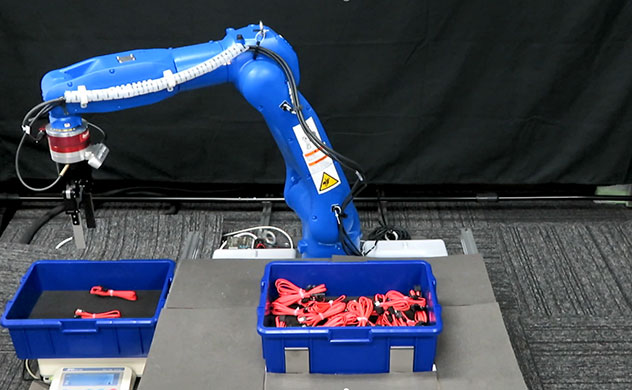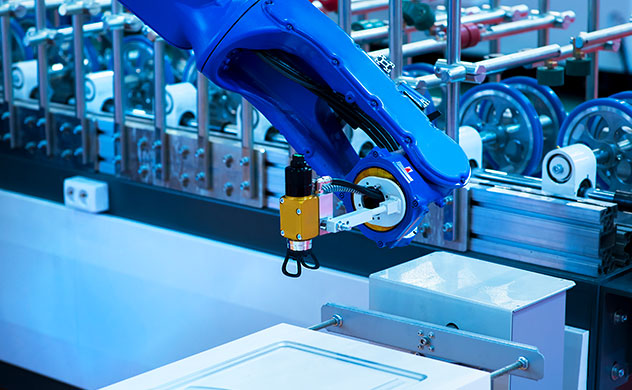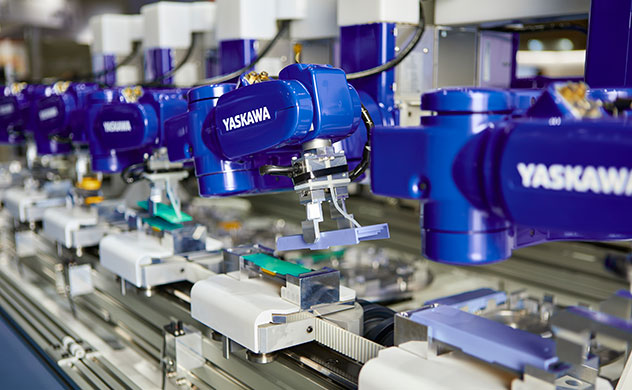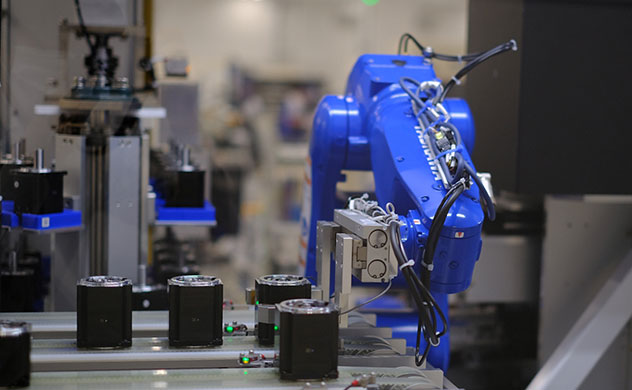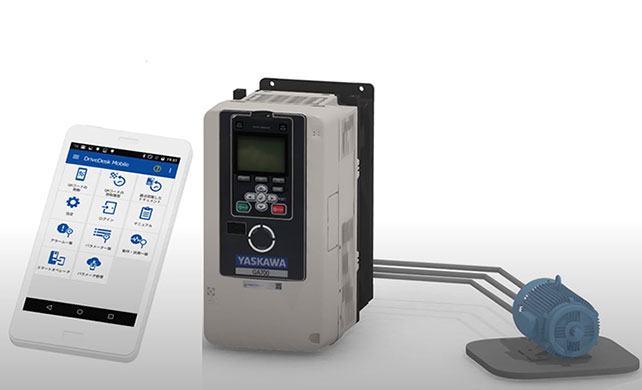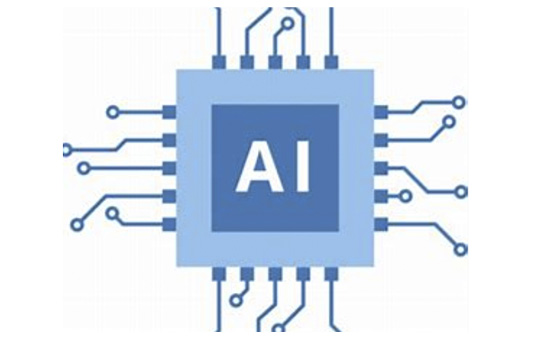i3-Mechatronics Offers Solutions for Customers’ Smart Factories
The term “”IoT” or “industrie 4.0” has come to be used in a broad meaning in recent years because of advances in telecommunications technologies, and many things such as automobiles, factories, and home appliances are connected digitally. Yaskawa promotes i3-Mechatronics as a solution concept in response to such trends in IoT and industrie 4.0.
At i3-Mechatronics, we propose that in addition to automating “cells,” digital data should be used to manage these tasks. This enables us to manage the operation status of equipment with process data and the production status with status data as “numerical values” rather than “expert knowledge”. We want to provide our customers with data management that eliminates red lights that are out of service and keeps the green lights on at their factories.
Solutions offered by i3-Mechatronics

The i3-Mechatronics will proceed in three “i” steps: (1) integrated, (2) intelligent, and (3) innovative. Specifically, we will connect the factory cells and systems such as equipment and devices to the IT layer by (1) integrating data. Next, the collected data is analyzed and fully utilized (2) intelligently. By doing so, we will be able to achieve (3) innovative, such as the improvement of operating facilities and the stability of production quality, and consequently resolve business challenges that customers are seeking to build smart factories.
Let’s look at what you can do with i3-Mechatronics with each solution.
Data Visualization by YCP
First of all, in order to promote smart factories, it is important to visualize the situation in which the equipment/devices of factories such as industrial robots, machine tools, and sensors are integrated and operating in integrated, which is the first i of i3-Mechatronics.
The features of Yaskawa Cockpit (YCP), a software tool for this purpose, are the “collection, accumulation and analysis” of data through visualization. In the area of data collection and accumulation, it is possible to link various equipment and devices at production sites, including those of other companies, to YCP, to collect data in units of one-millionth of a second by combining the time series of each equipment, and to match the time stamp.
For data analysis, YCP enables you to execute analysis models such as inferences, created by AI, on upper-tier. Additional add-ons such as health monitoring and production count monitoring are also added, and IT vendors provide centralized control of the transfer of data to upper-tier systems such as ERP, MES and Big Data.
By introducing YCP, it is possible to perform predictive failure diagnosis, operation status monitoring/diagnosis, equipment abnormality diagnosis, quality defect detection, etc.
Shorter installation time
Accuracy improvement
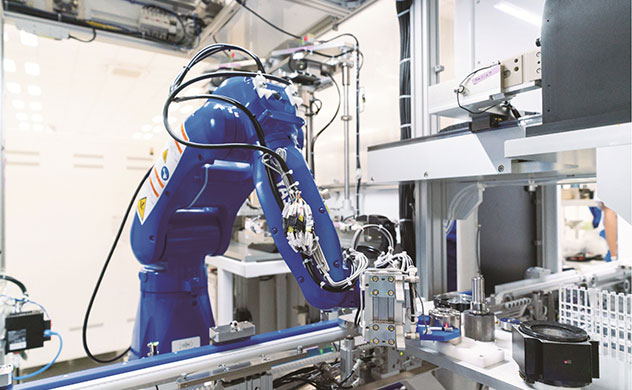
Accuracy Improvement of Defect Cause Analysis
< Yaskawa Case >
By “visualizing” the operation status of equipment/devices with Yaskawa Cockpit, it is possible to identify the root cause by comparing the normal value and abnormal value of the data in the factor analysis for defects in production.
Quality inspection
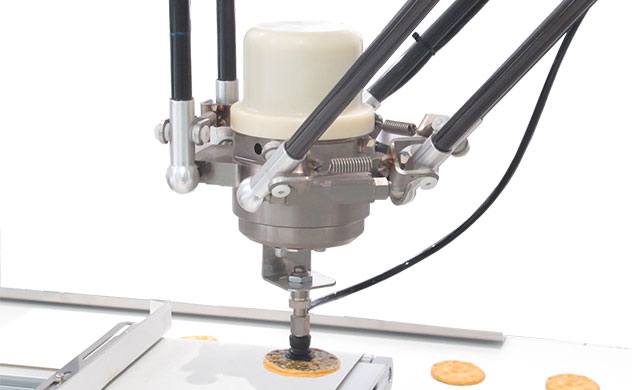
Automated Product Quality Assessment with AI
When the quality inspection process is labor-saving, the use of an image judgement service that utilizes AI technology such as deep learning makes it possible to automatically determine complex No Good patterns with the same level of accuracy as humans.




 Israel
Israel Thailand
Thailand Japan
Japan Singapore
Singapore China
China Korea
Korea Taiwan
Taiwan Vietnam
Vietnam Germany
Germany United States
United States






